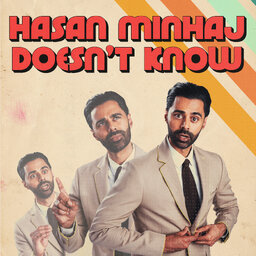On February 24, 1996, Cuban fighter jets shot down two small planes operated by Brothers to the Rescue, an organization in Florida that tried to spot refugees fleeing Cuba in boats. A strange chain of events preceded the shoot-down, and people in the intelligence business turned to a rising star in the Defense Intelligence Agency, Ana Montes. Montes was known around Washington as the “Queen of Cuba” for her insights into the Castro regime. But what Montes’ colleagues eventually found out about her shook their sense of trust to the core. (In this excerpt from Malcolm Gladwell’s forthcoming audiobook Talking to Strangers, we hear why spy mysteries do not unfold in real life like they do in the movies.)
To preorder a copy of Talking to Strangers and check out Malcolm Gladwell's book tour, visit www.gladwellbooks.com.
Learn more about your ad-choices at https://www.iheartpodcastnetwork.com
In 1 playlist(s)
Revisionist History
Revisionist History is Malcolm Gladwell's journey through the overlooked and the misunderstood. Ever…Social links
Follow podcast
Recent clips

The Big Birthday Party
32:00

Invisible Infrastructure with T-Mobile for Business
43:46

Malcolm Gladwell Doesn't Mind Being Wrong | From Hasan Minhaj Doesn't Know
1:02:56
 Revisionist History
Revisionist History